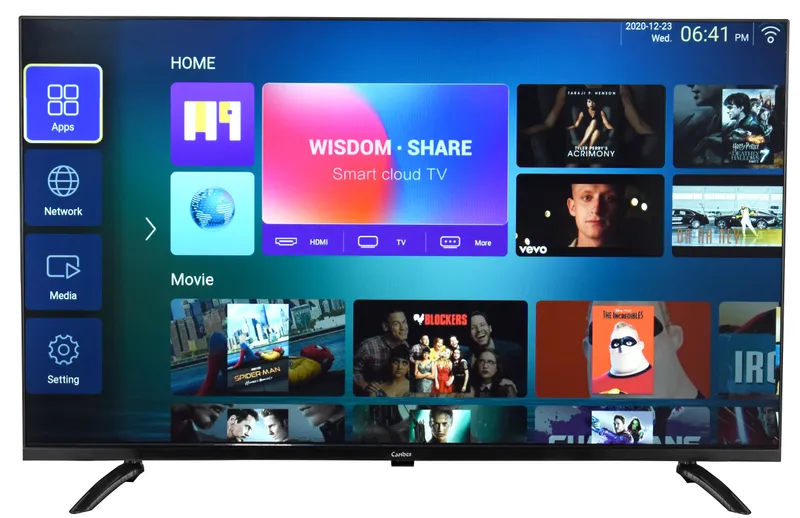How D2C enabled home appliances brand Candes clocked Rs 60 Cr in five years
Delhi-based manufacturer and seller of home appliances, Candes, was founded by brothers Sandeep and Vipin Agarwal. The brand has both online and offline presence, and counts affordability as its USP.
There was a time when Indian households were replete with homegrown consumer electronic brands like Crompton Greaves, Keltron, and Onida. Then came the flurry of international brands like Samsung, LG, Bosch and others.
Now, with Aatmanirbhar Bharat being a predominant sentiment, there is no better time for manufacturers to leverage and capitalise on the demand.
Against this backdrop, SMBStory spoke to founders of Made in India home appliances D2C brand - Candes. Founded in 2012 by brothers Sandeep Agarwal and Vipin Agarwal, the Delhi-based company manufactures and sells home appliances such as fans, geysers, LED TVs, inverters, stabilisers, refrigerators and more. The company has recently even launched a washing machine product line.
LED TVs, geysers, and stabilisers are manufactured in the company’s four manufacturing units in North Delhi and Bhavana. For the other products like room heaters, raw materials and components are sourced from different parts of the country and assembled at the units in North Delhi.
In FY21, the company clocked revenues worth Rs 60 crore. It has over 100 employees.
Personal journey
Talking about the initial years, Vipin, who hails from Sirsa, Haryana, says he always dreamt of becoming an entrepreneur. So, after completing his studies, he joined his relatives who ran an electronics business in Delhi.
As he was always fond of home appliances and gadgets, Vipin decided to start a similar business in 2010. Vipin launched Vedanta Electricals, a B2B original equipment manufacturing business. Under Vedanta, the brand Candes was launched as the B2C vertical in 2012, the actual operations of which started in 2015.
The company began by manufacturing and selling stabilisers through its website and other ecommerce platforms such as Amazon and Flipkart in 2015, and gradually diversified into other categories.
Vedanta and Candes Technology Pvt. Ltd. today function as separate entities after the company underwent an internal restructuring in January 2021.
Leaning on D2C
Vipin says one of the first lessons he learnt was that most customers preferred products that are affordable. He says the duo were clear from the beginning that they didn’t want to invest crazy money in marketing. They also realised that selling online helped in saving cost because there were no middlemen involved.
“We didn’t want to go through the traditional route of promoting the brand first, and then sell through retail channels. By going directly to the customers, we were able to save cost and pass that benefit on to our customers.”
According to him, another reason why going the D2C route helped was because it gave them “real-time feedback.” He says that while selling through its own website and ecommerce platforms, the company was able to get immediate feedback from its customers. “In offline retail, we would usually have to wait for five to six months before getting concrete feedback. .”
The products manufactured by Candes are low-priced as compared to larger companies like Crompton, Luminous, Usha, Bajaj and more. For instance, the fans by Candes start from Rs 1,200 whereas those sold by others start from somewhere around Rs 1,500.
Other brands in the segment with a similar price point include Activa, Digismart and Dacus Elansia.

Establishing a presence online as well as offline
In contrast to traditional organisations, Candes first launched online and then started selling retail after 2016. Today, it has established its presence in six Indian states including Uttarakhand, Jammu Kashmir, UP, Bihar, Gujarat and West Bengal through 500 retail touchpoints.
Before the COVID-19 pandemic outbreak in the country, the brand would get 85 percent of its revenue from its online channels and the rest from offline. However, during the pandemic, Vipin claims that almost 100 percent of the sales were coming from its website and ecommerce platforms.
Vipin highlights that because of COVID-19, the company faced several challenges like disruption of supply chains, shortage of labour and their retail stores were shut down. The D2C business helped the company ride over the predicaments posed by the pandemic.
One of the trends that has emerged strongly out of the pandemic is how local economies are ordering online owing to the increased penetration of the internet in these areas, especially considering the demand coming in from Tier II and III cities. Vipin attests to this and says that in the last one year, Candes is getting a lot of sales and queries from cities like Coimbatore, Lucknow, Visakhapatnam, and more.
What next?
Candes has some interesting plans lined up in the coming months.
First, according to Vipin, the brand wants to strengthen its penetration in the states it already exists in. The business also wants to set up services cum experience centres called ‘Candes World Stores,’ where customers can get a touch-and-feel experience of the products before buying them online.
The brand is also focussing on launching Internet of Things (IoT)-enabled products in fans and LED TVs that can be operated from the users’ mobile phones. The co-founders have a strong vision of making the company tech-enabled.
Also in the pipeline is Candes’ plans to spearhead the kitchen appliances category by introducing more products like blenders, choppers, etc this fiscal year.
Edited by Anju Narayanan









